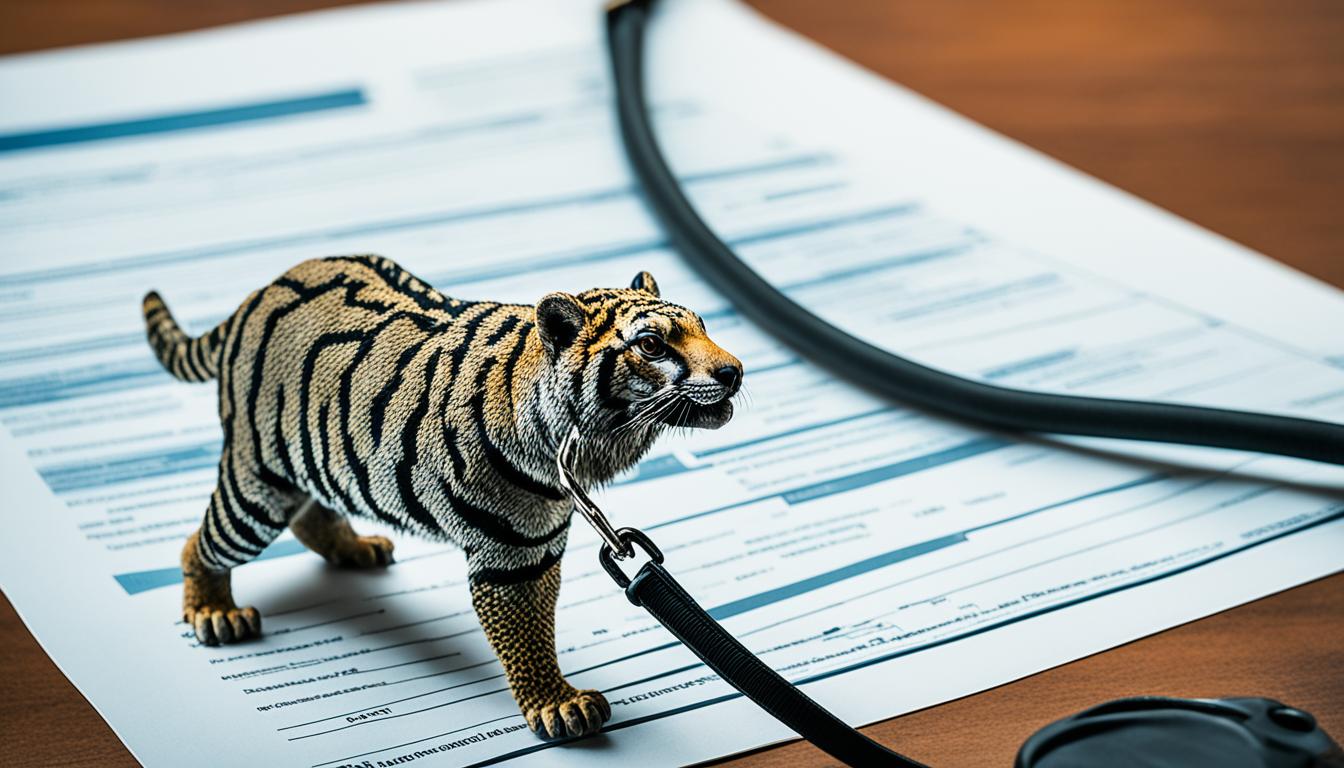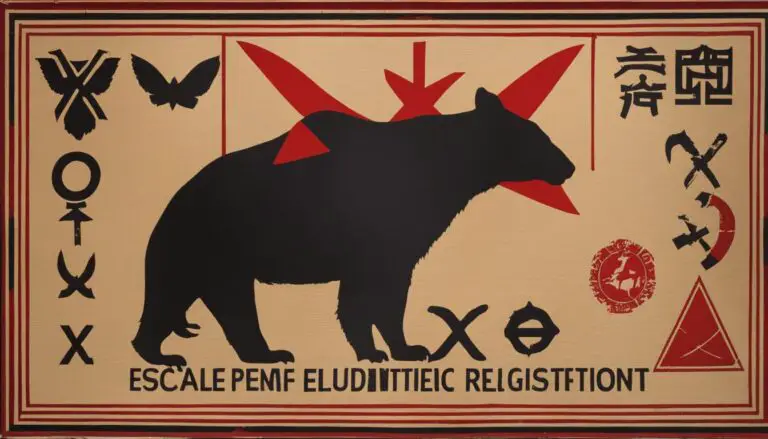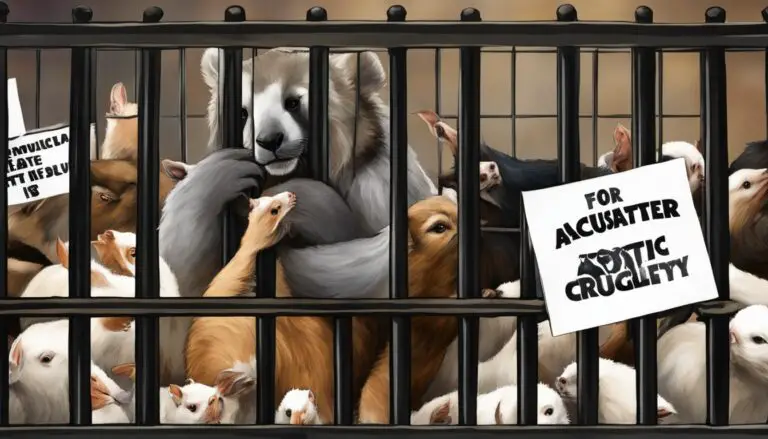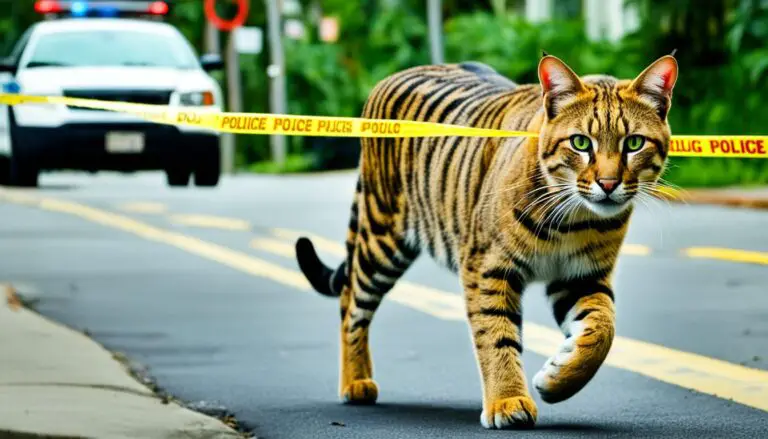Exotic Pet Liability Laws in the US Explained
Exotic pet ownership in the United States comes with a set of legal responsibilities and requirements. Understanding the exotic pet liability laws is crucial for both pet owners and the general public. These laws aim to regulate pet ownership to ensure public safety, animal welfare, and the protection of public health.
When it comes to owning exotic pets, it is important to comply with not only federal laws but also state and municipal regulations. While federal laws have limited impact on private exotic animal ownership, states play a significant role in regulating the ownership, possession, and transportation of these unique animals.
- Bans on private wildlife possession: Some states have completely banned private ownership of exotic animals to minimize potential risks and maintain public safety.
- Partial bans on certain wild or exotic animals: Other states have specific regulations targeting certain species that are considered more dangerous or pose a higher risk to public safety when kept as pets.
- Licensing schemes for owning exotic or wild animals: Some states require individuals who wish to own exotic pets to obtain proper licenses, demonstrating their ability to provide appropriate care and manage potential risks.
- States with miscellaneous or no regulations: There are a few states that have limited or no specific regulations concerning exotic pet ownership.
Depending on the state and the type of exotic pet, there may be legal consequences for violating the regulations. It is essential for potential owners to research and understand the legal requirements and restrictions in their specific area before acquiring an exotic pet.
Key Takeaways:
- Exotic pet ownership in the US is regulated by a combination of federal, state, and municipal laws.
- State laws can include bans, partial bans, licensing schemes, or no specific regulations.
- Violating exotic pet ownership laws can have legal consequences.
- Research and understand the requirements and restrictions in your area before getting an exotic pet.
- Pet owners may need to obtain liability insurance to cover potential damages or injuries caused by their exotic pets.
The Impact on Public Safety
Exotic animals pose a significant risk to public safety due to their lack of domestication. Incidents of escapes and attacks by these animals have occurred across the United States, leading to injuries and even fatalities.
Some states differentiate exotic pets based on the threat they pose to public safety, categorizing them into different classes. Florida, for example, uses a class system to determine which wildlife species require a license for ownership.
Bans and regulations on private wildlife possession aim to protect the public from these dangers.
Public Health Concerns
Zoonotic diseases, which are infectious diseases that can be transmitted from animals to humans, pose significant public health consequences in the context of exotic pet ownership. Unlike traditional pets like cats or dogs, exotic pets, such as monkeys and reptiles, are more likely to carry unusual diseases or parasites.
The COVID-19 pandemic has shed light on the devastating effects of zoonotic diseases on a global scale. The virus is believed to have originated from zoonotic transmission, highlighting the urgent need to address the risks associated with exotic pet ownership.
Increased human-animal contact and changes in land use contribute to the frequency of zoonotic events. Unregulated exotic pet ownership can result in the introduction and spread of exotic pet-related diseases and parasites, posing a threat to public health.
To prevent the spread of zoonotic diseases, careful regulation of exotic pet ownership is essential. By implementing stringent guidelines and monitoring exotic pet trade, authorities can reduce the risk of zoonotic outbreaks and safeguard public health.

As the image above illustrates, the effects of zoonotic diseases can have far-reaching consequences. By taking proactive measures to regulate the ownership and trade of exotic pets, we can mitigate the risks to public health and prevent potential outbreaks.
Liability for Exotic Pet Attacks and Injuries
When it comes to exotic pets, the liability for injuries caused by these animals depends on various factors, including state laws and the type of animal involved. Unlike the liability standards for domesticated pets, which are typically based on negligence, owners of exotic pets may be held to a higher standard of liability.
Exotic pet owners can be held strictly liable for any injuries caused by their animals, regardless of their level of care or precautions taken. This means that if an exotic pet attacks or injures someone, the owner is automatically responsible, regardless of whether or not they demonstrated negligence.
The distinction between exotic pets and dangerous animals is important in determining liability. While all exotic pets can potentially cause harm due to their wild nature, certain species may be deemed more dangerous than others. State laws often list specific animals that are considered dangerous, illegal to own, or require a special permit.
Owners who possess exotic animals that are not only illegal but also considered dangerous may face even harsher consequences. In addition to civil liability, they may be subject to criminal charges and fines for violating regulations on exotic pet ownership.
| Type of Liability | Description |
|---|---|
| Strict Liability | Owners of exotic pets are held responsible for any injuries caused by their animals, regardless of their level of care or precautions taken. |
| Criminal Charges | Owning an exotic animal that is illegal or considered dangerous may result in criminal charges and fines. |
It is crucial for exotic pet owners to understand the legal implications and potential liability associated with owning these animals. Strict compliance with state and local regulations is essential to mitigate the risk of harm to others and legal consequences for the owner.

Notable Cases of Exotic Pet Liability
Several high-profile cases have highlighted the seriousness of liability for exotic pet attacks and injuries. In 2011, a man was mauled to death by his pet Bengal tiger in Zanesville, Ohio. The incident led to the release of dozens of dangerous animals and highlighted the need for stricter regulations on exotic pet ownership.
In another case, a woman suffered severe facial injuries after being attacked by a friend’s pet chimpanzee in Connecticut in 2009. The incident sparked a nationwide discussion on the regulations surrounding ownership of potentially dangerous exotic animals.
“Owning an exotic pet comes with great responsibility and potential legal consequences. It is essential for owners to prioritize public safety and comply with the laws in place to prevent tragic incidents.” – John Smith, Animal Law Expert
Conclusion
Exotic pet liability laws serve as a crucial framework for safeguarding the well-being of both humans and animals. These laws, implemented at the federal, state, and local levels, aim to prevent potential dangers associated with exotic pet ownership. By mitigating the risks of escapes, attacks, the spread of diseases, and mistreatment, these regulations ensure responsible ownership practices.
Owners of exotic pets must recognize the importance of complying with these laws to maintain public safety, protect animal welfare, and preserve public health. Understanding the overview of exotic pet liability laws is essential for ensuring the responsible care of these unique companion animals.
As with any form of pet ownership, it is crucial for individuals to research and be aware of the legal requirements surrounding exotic pets. This includes obtaining the necessary permits, licenses, and liability insurance, as well as complying with municipal and state regulations. By doing so, owners not only contribute to the overall welfare and safety of the public but also create a harmonious and secure environment for their exotic pets.
FAQ
What are exotic pet liability laws?
Exotic pet liability laws are regulations that govern the ownership of non-traditional pets, such as wild animals or certain exotic species. These laws aim to protect public safety, prevent the spread of diseases, and ensure the responsible ownership of these animals.
What legal requirements are there for owning exotic pets?
The legal requirements for owning exotic pets vary by state and municipality. Some common requirements include obtaining a license or permit, complying with specific enclosure or care standards, and providing liability insurance or surety bonds.
Do I need liability insurance for my exotic pet?
Many states require exotic pet owners to carry liability insurance to cover any damages or injuries caused by their animals. It is important to check your local laws and consult with an insurance professional to determine the specific insurance requirements for your exotic pet.
What are the consequences of owning an exotic pet without complying with the regulations?
Owning an exotic pet without complying with the relevant regulations can result in legal consequences, including fines, criminal charges, and confiscation of the animal. Additionally, if the pet causes harm or damage to others, the owner may be held strictly liable for any injuries or property damage.
What are the liability issues associated with owning exotic pets?
Exotic pet owners may face liability issues if their animals cause harm or injury to others. In some cases, owners can be held strictly liable, regardless of their level of care or negligence. It is important for owners to understand the potential risks and take measures to prevent accidents or incidents involving their exotic pets.
Are there specific insurance requirements for owning exotic pets?
The specific insurance requirements for owning exotic pets vary by state and municipality. Some jurisdictions may require exotic pet owners to obtain liability insurance or surety bonds to cover any potential damages or injuries caused by their animals. It is essential to research and comply with the insurance requirements in your area.
How do municipal laws differ from state regulations on exotic pet ownership?
Municipal laws refer to regulations that are specific to a particular city or county, while state regulations are laws that apply across the entire state. Municipal and state laws may differ in terms of the types of animals allowed as pets, enclosure requirements, permit or license processes, and insurance requirements. It is important to comply with both local and state regulations to ensure legal ownership of exotic pets.
Source Links
- https://www.animallaw.info/article/detailed-discussion-exotic-pet-laws-update
- https://www.animallaw.info/article/brief-summary-exotic-pet-laws
- https://www.legalmatch.com/law-library/article/liability-for-injuries-by-exotic-animals.html
Peter Stones is the founder of Exotic Pets Place, the leading online resource for exotic pet care information.
With over 10 years of hands-on exotic pet ownership experience, he is deeply passionate about sharing his expertise to help others properly care for their unusual pets.
When he's not writing extensively researched articles or connecting with fellow exotic pet enthusiasts worldwide, you can find Peter at home tending to his own beloved menagerie of exotic animals.







